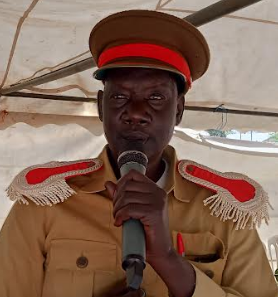The paramount chief of the Buonchuai community in Aweil South County in Northern Bahr el Ghazal State has said that the appointment of many executive chiefs since last year and the subsequent proliferation of local courts have created confusion in the community.
Paramount chief Piol Geng Ariath blamed the Northern Bahr el Ghazal State ministry of local government and law enforcement agencies for appointing and promoting a high number of chiefs leading to mayhem and duplication in the customary law courts. He said some people now take their cases to chiefs who are their relatives.
“What caused problems from last year is the promotion of new executive chiefs,” Chief Geng said. “We the paramount chiefs have realized that there is a lot of disorder and confusion when many new executive chiefs are promoted or appointed. For example, my area Buonchuai had only six executive chiefs, but now their number increased to more than 80 or even 100.
He added: “This change spoils the system of how cases are handled locally because the paramount chiefs are not respected and some locals refer their complaints to the chiefs who are their relatives.”
However, the Northern Bahr el Ghazal State local government minister, Kiir Chan Wol, denied that his ministry promotes and appoints executive chief without consulting the community.
“Of course, there are chiefs heading tribes and others rule large areas and for that reason, the ministry has no power to promote or appoint any chief without approval from a local community,” Minister Chan explained. “If a chief mobilizes 405 inhabitants and applies to be their executive chief, the application passes through the Payam and county offices before it is approved by the ministry.”
Elizabeth Nyanut Angok, the executive director of the Mother and Child Care Organization, said the increment in the number of chiefs has created challenges in the state because the Local Government Act 2009 was not followed.
“The promotion of the chiefs is a problem for the common citizens across the country. The South Sudan Local Government Act 2009 gives certain jurisdictions to the chiefs and constitutional courts. Now, everybody has powers to create a small area and make himself or herself to be a chief, but a chief is the one who is appointed by a group of people,” Nyanut said.




